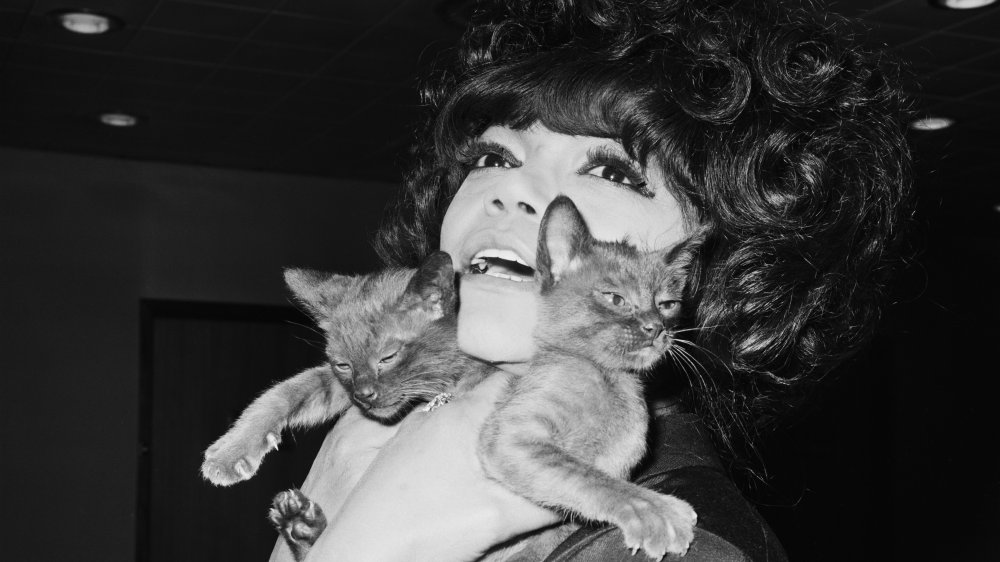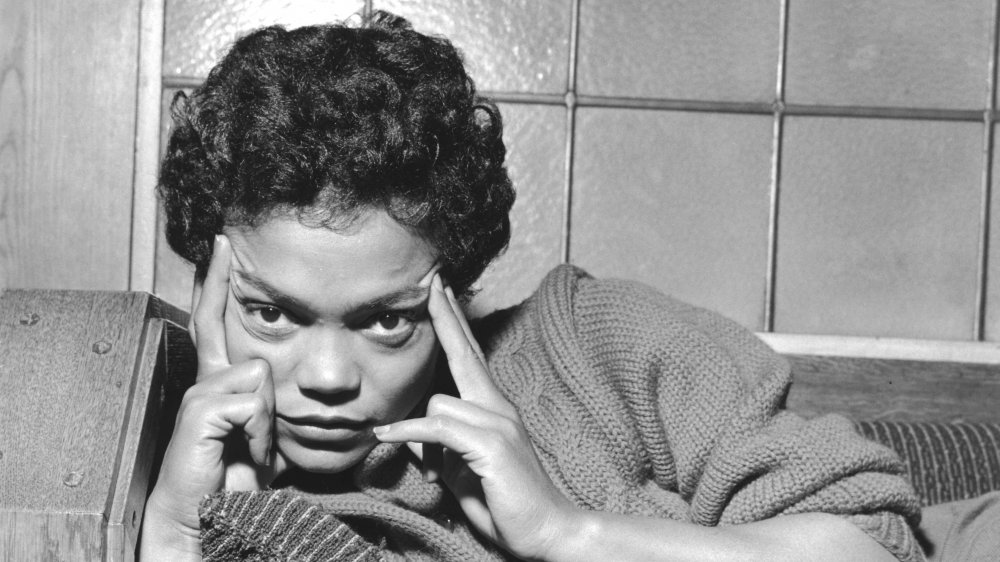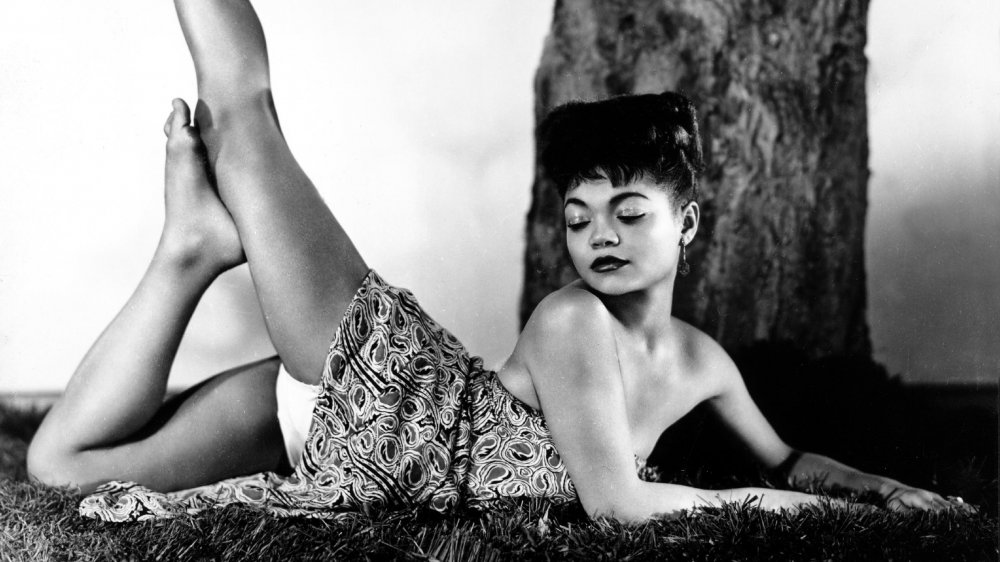This Is Why Eartha Kitt Was Once Blacklisted By The CIA
In 1967, actress and singer Eartha Kitt landed the role of Catwoman on the original Batman TV show that was a HIT! (get it?) with all the young kids at the time. Filling out a sleek, form-fitting leather suit and purring like a sex kitten that black women weren't usually allowed to be in entertainment at the time, Kitt broke ground with the role as easily as she broke hearts with her voice. In her essay published in the Journal of Graphic Novels and Comics, and posted to Taylor & Francis Online, Dr. Deborah Elizabeth Whaley described just how pioneering Kitt's role on the show was. "Notably, Kitt's performance stood in contest to the roles available to Black women on television, insofar as she did not fit the proverbial mammy, Jezebel, tragic mulatta, and sapphire stereotypes that were abundant on television and in the cinema at this time," wrote Dr. Whaley.
But although her role broke some barriers at the time, this was still the 1960s, and writers made sure that the lines Kitt crossed remained somewhat tame. As Whaley noted, much of the sexual innuendo particular to the character of Catwoman was replaced by diabolical schemes to avoid any notions of interracial romance between her and the Caped Crusader. Still, Kitt wasn't done pushing boundaries, and the following year her headstrong attitude and fearlessness in the face of power would land her in hot water with one the country's most powerful and secretive federal agencies.
Eartha Kitt paid a price for speaking out against the Vietnam War
In January 1968, Kitt was invited to a luncheon at the White House hosted by First Lady Ladybird Johnson, to discuss the problem of juvenile crime in the United States. As Sarah J. Jackson noted in her book Black Celebrity, Racial Politics, and the Press: Framing Dissent, Kitt challenged both the First Lady and President Johnson, the latter of whom stopped by at the beginning of the lunch to offer a politician's classically evasive view toward social responsibility.
When President Johnson said that mothers primarily held the responsibility for ensuring that their children didn't fall into criminal activity, Kitt asked him how working parents who couldn't spend time with their children were supposed to fulfill that duty. The president said that the Social Security Bill provided funding for daycare centers, which patently did not resolve the problem of parents not being able to be with their children, then said as he left the room: "That is a very good question for you to ask yourselves ... and you all tell me what you think."
Later in the luncheon, Ladybird Johnson asked the women for their own observations on juvenile crime. Kitt, who was a member of the Women's International League for Peace and Freedom, linked the crime and unrest at home to the War in Vietnam. What she said that day would send the CIA stalking after her and nearly ruin her career.
The CIA crushed Eartha Kitt's career opportunities in the United States
Kitt told Ladybird Johnson that the draft and the country's inadequate social services were to blame for rising crime rates among youth. "You take the best of the country and send them off to war and they get shot," she said. "They don't want that." She said that they had seen the previous generation return from World War II wounded and unable to get jobs and knew they didn't want that for themselves. Since they couldn't tell the President themselves, she said, "They rebel in the streets." Her impassioned speech was said to bring the First Lady to tears, but most likely because Kitt had ruined the nice ladies lunch with her stern real talk, not because she moved the first lady toward any kind of moral realization.
Once the lunch was over, Kitt found herself without a ride back to her hotel, even though the White House had arranged for her transport to the event. According to Vice, the CIA had a dossier on Kitt within days. It apparently called her a "sadistic nymphomaniac," and the abusive label would follow her media presence for the rest of her life. She was blacklisted from clubs and other venues in the United States, and was forced to move to Europe to find work until later in her life. Years later, when asked about the epithet, she said, "What has that got to do with the CIA if I was?"


